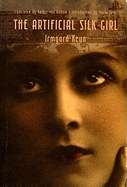The Artificial Silk Girl

Resumen del libro
First published in 1932, this unusual novel might well have been subtitled "Social Climbing Through Bed-Hopping in the Last Days of the Weimar Republic." Initially a commercial success, it was soon banned by the Nazis for the racy, irreverent musings of its narrator, Doris, an office worker who decides that her best chance of improving her lot is to exercise her considerable libido as she tries to find a rich Mr. Right. Her strategy succeeds for brief periods, but Doris also goes through several down-at-the-heels phases as her various affairs come apart; at a particularly perilous moment, she is almost forced into prostitution. Her most consistent candidate for true love is a man named Hubert, who wanders in and out of her life. When he disappears, Doris takes a stab at life in the theater before a problematic affair ends that venture. Doris's frank, outrageous comments on the foibles of her various suitors keep things entertaining until the one-note romantic plot begins to wear thin. Readers may be disappointed that Keun (1905-1982) has little to offer on the politics of the era, save for her portrayal of a brief date in which Doris gets rejected when she pretends to be Jewish. That lacuna aside, this is an illuminating look at the much-mythologized social and sexual mores of Weimar Germany. (July) Copyright 2002 Cahners Business Information.
Biografía del autor
Irmgard Keun (Berlín 1905-Colonia 1982) fue una escritora de éxito durante la República de Weimar. En 1933 los nazis secuestraron sus libros y dos años más tarde se exilió de Alemania. A raíz de la ocupación nazi de Holanda en 1940 y tras la separación de su compañero x{0026} x02015;el escritor Joseph Roth, con el que había vivido un intenso año entre Viena, Bruselas, París, Ostende y Ámsterdamx{0026} x02015; se vio obligada a regresar a su país, donde las autoridades la daban por muerta. Allí vivió clandestinamente hasta el final de la guerra. Durante los años ochenta, los lectores alemanes redescubrieron sus novelas, entre las que se cuentan "Después de medianoche", "La chica de seda artificial", "Niña de todos los países" y "Gilgi, una de nosotras". En ellas, el punto de vista de una protagonista femenina suele irrumpir de la mano de un humor desenfadado aunque melancólico.








